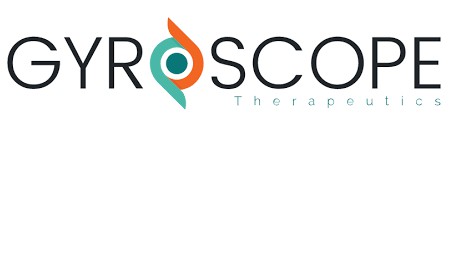
UK-based Gyroscope is to merge with Orbit Biomedical to further develop its gene therapy platform for eye diseases.
The companies says that by uniting Gyroscope with Orbit, it creates the world’s first end-to-end retinal gene therapy business, with clinical, manufacturing and delivery capabilities.
“[Together], we can combine our expertise in developing gene therapies and our high-quality manufacturing processes with a surgical platform that can support accurate, safe and consistent delivery of medicines that will hopefully cure eye diseases that today leave people blind,” said Gyroscope’s chief executive Khurem Farooq, who will remain in his newly-appointed role.
Gyroscope, which will keep its name post-merger, hopes the new offering will further advance its lead investigational gene therapy, GT005, which is currently in phase 1/2 testing for those with advanced dry Age-related Macular Degeneration (AMD).
Its first patient was dosed earlier this year, and if the therapy is eventually approved, it could open up a huge global market for the company, as there are no currently approved therapies for the more common dry form of AMD.
Eye conditions have emerged as one of the leading areas for gene therapy – thanks to factors such as the eye’s easy accessibility, it being a highly compartmentalised and immune-privileged organ, and decades of research into the genetic basis of numerous eye conditions.

Syncona’s Chris Hollowood
Both companies have been backed by Syncona, a venture capital firm focused on life sciences, including a host of UK-based cell and gene therapy firms.
Its chief investment officer, and chair of Gyroscope, Chris Hollowood said that the merge will allow Gyroscope to gain “all the platform capabilities it requires to develop and deliver its therapeutics commercially”.
He adds: “This marks an important step in fulfilling founding academics, David Kavanagh and Andrew Lotery’s vision of widespread use of genetically defined treatments for dry AMD.
“As retinal gene therapy progresses to more prevalent conditions, delivering a therapeutic in a way that ensures higher consistency of dosing, whilst allowing patients to receive a less invasive treatment, is key to widespread use and clinical effectiveness.”
Spark Therapeutics’ Luxturna for inherited retinal dystrophy (IRD) was approved in the US in 2017 and also cleared in Europe last year, where it is marketed by Novartis. Spark was recently acquired by Roche for $3.4bn, while Nightstar, a UK rival with a similar ocular gene therapy platform (and part of the Syncona stable) was bought up by Biogen for $800m.
Gyroscope believers the merger will also help progress its pipeline of candidates for diseases linked to a specific part of the immune system, which when unbalanced, can affect sight.
Operating as a specialist medical device company, Orbit says its wants to “revolutionise gene therapy” with its targeted delivery solutions and has a goal to “help make the administration of one-time therapies as safe and efficient as possible for patients”.
Its tech covers a wide array of areas, but what is of particular interest to Gyroscope is Orbit’s microcannula device that accesses the sub-retinal space in front of the eye without the need to remove the vitreous, the gel-like substance in the centre of the eye.
The announcement comes hot on the heels of news of another two biotechs Histogenics and Ocugen merging to become one specialist eye disease company.
Both Ocugen and Histogenics are US-based, and the companies are hoping the merge will further progress Ocugen’s lead candidates OCU310 for dry eye disease and OCU300 for ocular graft-versus-host disease.




